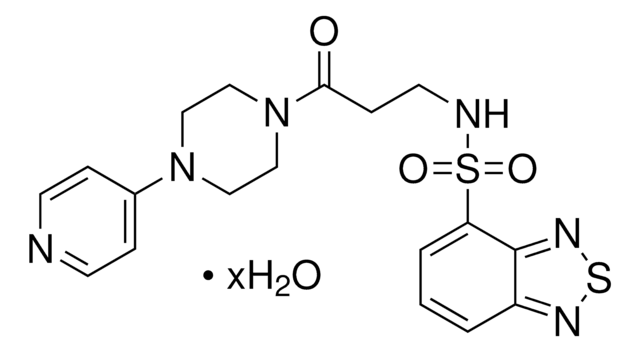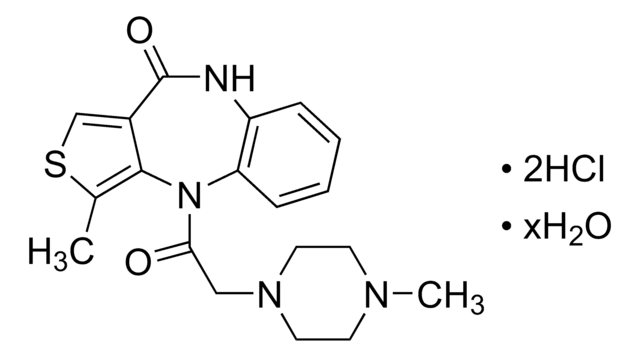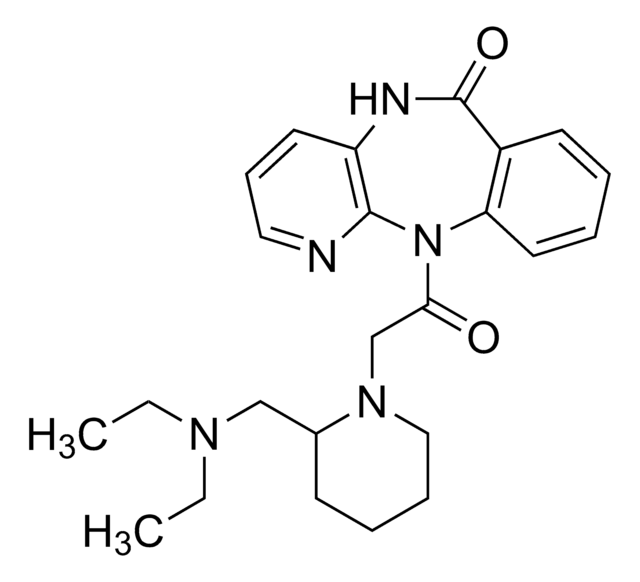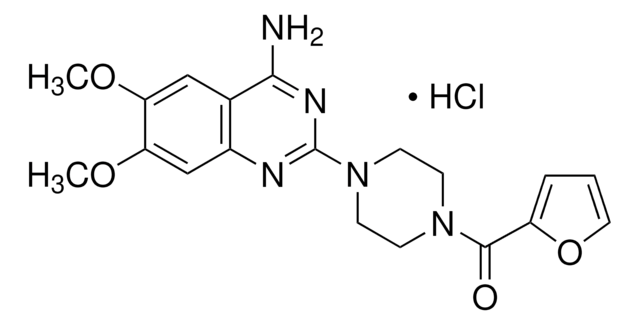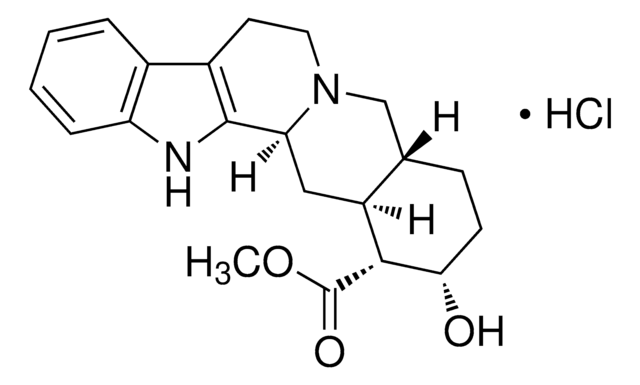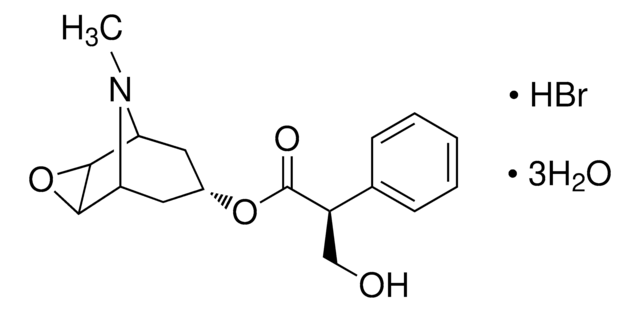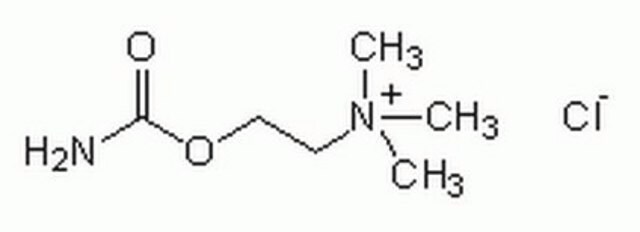P7412
Pirenzepine dihydrochloride
≥98% (TLC), powder
Synonym(s):
5,11-Dihydro-11-[(4-methyl-1-piperazinyl)acetyl]-6H-pyrido[2,3-b][1,4]benzodiazepin-6-one dihydrochloride
About This Item
Recommended Products
Quality Level
Assay
≥98% (TLC)
form
powder
color
white to light yellow
solubility
H2O: 50 mg/mL
SMILES string
Cl[H].Cl[H].CN1CCN(CC1)CC(=O)N2c3ccccc3C(=O)Nc4cccnc24
InChI
1S/C19H21N5O2.2ClH/c1-22-9-11-23(12-10-22)13-17(25)24-16-7-3-2-5-14(16)19(26)21-15-6-4-8-20-18(15)24;;/h2-8H,9-13H2,1H3,(H,21,26);2*1H
InChI key
FFNMBRCFFADNAO-UHFFFAOYSA-N
Gene Information
human ... CHRM1(1128)
General description
Application
- in transactivation of fibroblast growth factor receptor (FGFR).
- as a supplement in cell culture.
- for the stimulation of human fibroblasts
Biochem/physiol Actions
Features and Benefits
Caution
Storage Class Code
11 - Combustible Solids
WGK
WGK 2
Flash Point(F)
Not applicable
Flash Point(C)
Not applicable
Personal Protective Equipment
Choose from one of the most recent versions:
Already Own This Product?
Find documentation for the products that you have recently purchased in the Document Library.
Customers Also Viewed
Related Content
DISCOVER Bioactive Small Molecules for Neuroscience
Our team of scientists has experience in all areas of research including Life Science, Material Science, Chemical Synthesis, Chromatography, Analytical and many others.
Contact Technical Service
